When you hear Horn of Africa all you are thinking is drought, famine and conflict. But wait: this is the birth of humanity. It is the area that ancient Egyptians called “Punt” (land of gods); it is where humans became humans more than 100,000 years ago; it is where the bridge, Bab el Mendeb, for the “Out of Africa” theory of human migration to the rest of the world was located; it is the capital of a number of civilizations including Axum, Dmt, and the Sultanates of Adal, Warsangali, Hobyo, Majerteen; it is the home for the earliest adopters of Christianity and Islam and it has numerous monasteries and shrines and walled towns to prove it…It is the producer of marathon runners and coffee and injera and…
But that was then.
How are the children of the Horn–Somalis, Djiboutians, Ethiopians and Eritreans–doing these days? How are they managing their democracy? Let’s do it counter-clockwise:
Somalia
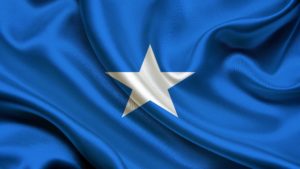 Somalis just had an election and they elected a new president. Well, Somalis didn’t, it wasn’t one-adult-one-vote. What happened was some Somali elders from all its clans, appointed delegates (14,000 of them), and these delegates elected a parliament (328 of them), and this parliament elected a president. Because the Somalia constitution says the president had to get a 2/3 supermajority, there were three rounds. They started with 26 candidates, and by the time they got to the 2nd round, there were three candidates: the former incumbent, the incumbent, and the eventual winner; by the time they got to the 3rd round, there were two candidates standing: the incumbent and the eventual winner. The leader didn’t have the 2/3 majority but he was leading the number 2, the incumbent, by such a huge margin, the incumbent conceded and Somalia now has a new Head Cheese.
Somalis just had an election and they elected a new president. Well, Somalis didn’t, it wasn’t one-adult-one-vote. What happened was some Somali elders from all its clans, appointed delegates (14,000 of them), and these delegates elected a parliament (328 of them), and this parliament elected a president. Because the Somalia constitution says the president had to get a 2/3 supermajority, there were three rounds. They started with 26 candidates, and by the time they got to the 2nd round, there were three candidates: the former incumbent, the incumbent, and the eventual winner; by the time they got to the 3rd round, there were two candidates standing: the incumbent and the eventual winner. The leader didn’t have the 2/3 majority but he was leading the number 2, the incumbent, by such a huge margin, the incumbent conceded and Somalia now has a new Head Cheese.
Over in the unrecognized breakaway republic of Somaliland, they had been doing this thing called elections for so long they must have been shaking their head at all the attention Somalia (non breakaway) was getting. In March, they will be having their 3rd multiparty election to directly elect a president for a 7-year term.
Ethiopia
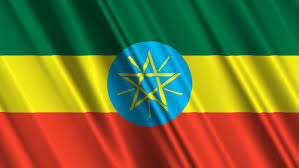 If Somalia requires that the president have the support of 2/3 of the voters, Ethiopia requires that the winner have 50% plus 1. This is not exactly a good recipe for a diverse country of 90 million people with 88 languages. Not good, that is, for the governed: it is a sweet deal for the governors. Ethiopia, which has a parliamentary system where parliamentarians elect a prime minister, last had Federal parliamentary elections in 2015. The gigantic, super-dominant party is not a party: it is People’s Revolutionary Democratic Front, a coalition of parties which dominate each of the 9 regional states. The other parties, to the extent they are allowed to exist, are not competitive and in the extremely rare case where they are, the winner-takes-it-all formula continues to disenfranchise a large segment of the population with Ethiopia, every 5 years, claiming 97%, 98% and 100% wins.
If Somalia requires that the president have the support of 2/3 of the voters, Ethiopia requires that the winner have 50% plus 1. This is not exactly a good recipe for a diverse country of 90 million people with 88 languages. Not good, that is, for the governed: it is a sweet deal for the governors. Ethiopia, which has a parliamentary system where parliamentarians elect a prime minister, last had Federal parliamentary elections in 2015. The gigantic, super-dominant party is not a party: it is People’s Revolutionary Democratic Front, a coalition of parties which dominate each of the 9 regional states. The other parties, to the extent they are allowed to exist, are not competitive and in the extremely rare case where they are, the winner-takes-it-all formula continues to disenfranchise a large segment of the population with Ethiopia, every 5 years, claiming 97%, 98% and 100% wins.
To the surprise of nobody (except the ruling Front), this level of marginalization and disenfranchisement breeds resentment which boils over and becomes an uprising. So Ethiopia is now under a state of emergency.
Djibouti
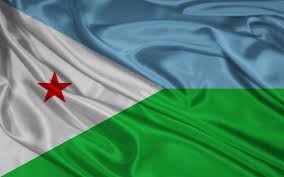 In April of 2016, Djibouti had its presidential election and the winner received 87% of the vote. In the first draft. In direct elections. And that was his fourth five-year term: he has been president since 1999. There were 7 candidates and if you think the 6 should have presented a united front: he received 8 times their combined total and it wouldn’t have helped.
In April of 2016, Djibouti had its presidential election and the winner received 87% of the vote. In the first draft. In direct elections. And that was his fourth five-year term: he has been president since 1999. There were 7 candidates and if you think the 6 should have presented a united front: he received 8 times their combined total and it wouldn’t have helped.
Of course we could give you all sorts of conspiracies about France, France, France and France but we are not that kind of website.
Eritrea
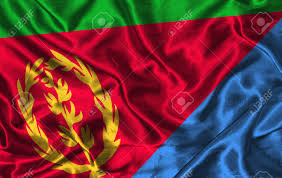 The Government of Eritrea is also made up of a Front, this one being for Democracy and Justice. This Front has been in power ever since Eritrea became an independent state in 1991. In 2016, those who want to discuss Eritrean Democracy and Justice were invited by Eritrea’s president to pursue that in Mars or the Moon because multiparty elections will never happen in Eritrea. We regret that we have not received any updates from our correspondent to Mars and the Moon.
The Government of Eritrea is also made up of a Front, this one being for Democracy and Justice. This Front has been in power ever since Eritrea became an independent state in 1991. In 2016, those who want to discuss Eritrean Democracy and Justice were invited by Eritrea’s president to pursue that in Mars or the Moon because multiparty elections will never happen in Eritrea. We regret that we have not received any updates from our correspondent to Mars and the Moon.
Sudan is sometimes included and sometimes excluded from the Horn of Africa. We will exclude them because their politics is just as depressing.
What was the whole point of this article? I guess we are saying the Children of the Horn have yet to find how to make Somalia, Ethiopia, Djibouti and Eritrea Great Again. For now, Somalia has brought about election results that has made every Somali I know happy and hopeful so congratulations and may the scourge of Al-Shabab and all the reactionary dark forces be lifted of all our lands.

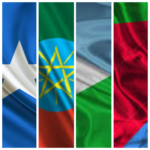
Leave A Reply